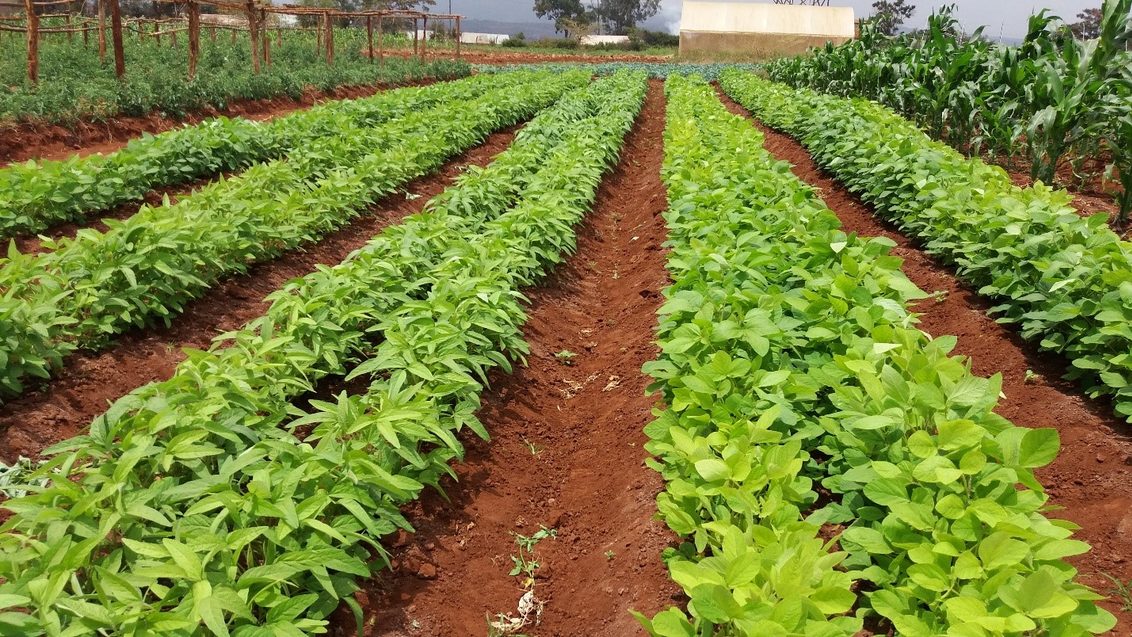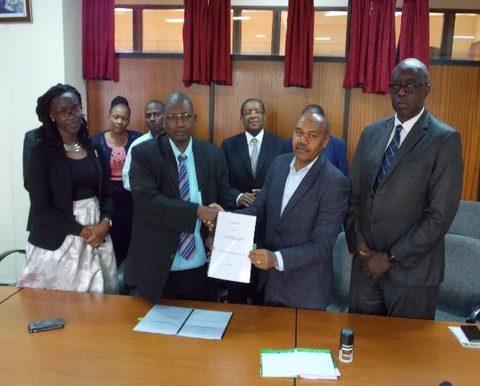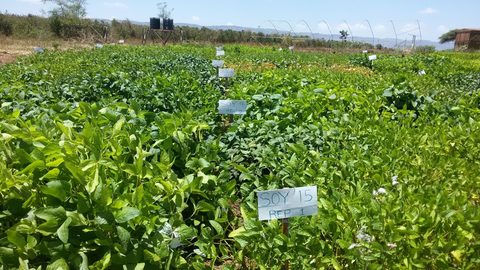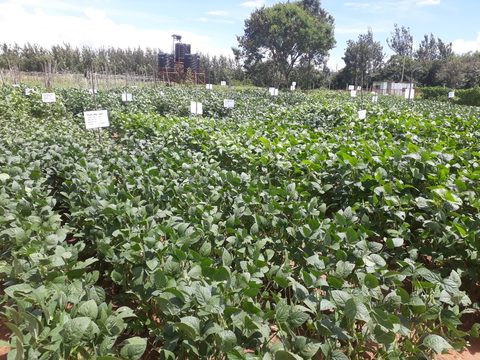Every trial helps give farmers a better choice

Our Foundation is helping Kenya’s farmers increase their soybean production. Two new varieties recently reached a major milestone. Many more could follow.
“There are several pillars to the soybean program”, explains George Osure, Syngenta Foundation Regional Director for East Africa. “One of the main ones is our work with partners on screening, adaptability and marketing trials of new, improved varieties. So far, 35 varieties have entered testing in different settings across Kenya, in both the ‘short rains’ and ‘long rains’ seasons.”
A key to lifting the Kenyan soybean sector is our Partnerships for Seed Technology Transfer in Africa (PASTTA) program with USAID. Stacy Mwangala from our Nairobi team is Deputy Chief of Party. Through PASTTA, we are partnering with national soybean breeders at KALRO and public Agricultural Training Centers to conduct marketing trials”, Stacy reports. “These trials have already enabled more than 2000 farmers to get a first-hand impression of the new public varieties.” Smallholders have attended crop demonstrations and field days across Kenya’s Eastern, Central and Western regions.
“Successful marketing trials have led to an exciting new development”, Stacy continues. “Our Foundation recently facilitated the licensing and commercialization of two public-bred soybean varieties.” KALRO has signed an agreement with Pearl Agro Ltd to multiply and supply the seeds to farmers. “This will increase seed availability, and give farmers a better choice of certified seeds”, comments Stacy. “That will help increase soybean productivity here and in other countries.”
George Osure participated in the signing ceremony. “We’re very happy about this big step forward for the varieties Gazelle (for oil extraction) and BP-SB 19 (for protein processing)”, he says. “We now look forward to seeing smallholders benefit.”
The Syngenta Foundation is currently helping with the registration process for five further soybean varieties. Three come from KALRO, and one each from IITA in Zambia and Brazil’s R&D organization Embrapa. “They are all in the final season of trials”, says George. “If registered, they would be available to farmers in 2020.”
Together with the Soybean Innovation Lab, we are also conducting adaptability trials on 30 more varieties in four locations in Kenya. The aim is to identify high-yielding, ecologically adapted soybeans that give farmers an even better choice. Successful varieties from these trials will progress to National Performance Trials for possible registration by KEPHIS.



